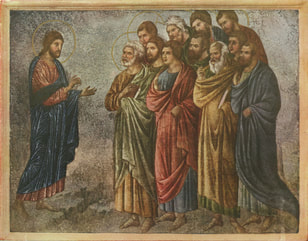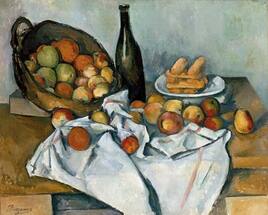 we are meant to be stewards we are meant to be stewards Something that most of us consider ‘uncouth’ is the practice of re-gifting, that is, receiving an item that is not liked and passing it on to someone else. This action is actually neither good nor bad, but it is our intention that renders it one way or the other. If the object being passed along is thought of as something that the other really would like, then it could be an excellent choice for giving. If it is simply to rid ourselves of something with absolutely no thought of the other, or to simply fill an obligation to give, then our motives are tacky at best, self-serving at worst. However, in the spiritual life re-gifting is not only considered a good thing, it is encouraged! Jesus taught that what we receive is supposed to be passed on. Holding possessively onto the gifts God gives means we have missed the key point in Jesus’ teaching (love); it is to misunderstand God’s gifts and graces, that they are not meant for us to possess, but rather to nurture, to learn from, and then to pass on to our brothers and sisters. In truth, we possess nothing, not even our own lives, but rather, through our Baptism we belong to the Lord as His adopted sons and daughters.* Rather than possessing anything, we are meant to be the stewards of what God gives and all is meant to be shared. That is to say, what we receive as a gift, we are to give as a gift.  without cost you are to give without cost you are to give A truth by which we should live is found in Jesus’ second discourse in Matthew’s Gospel: “Without cost you have received; without cost you are to give.” When He commissioned them to go forth, Jesus told the Twelve to proclaim that the Kingdom of God is at hand. “Cure the sick, raise the dead, cleanse lepers, drive out demons.” (Matthew 10:5-8) Jesus also said to take no money, sack, second tunic, or walking stick as they traversed the countryside sharing the Good News in word and deed. For us as for them, to go forth in this way requires two things: a deep trust in God, and that what we are given is not meant to be held on to, but to be shared or given away. This truth incorporates the entirety of the Gospel and the life of Jesus: He held on to nothing and neither should His disciples. Remember that a short time before commissioning the Twelve He had said, “The Son of Man has nowhere to lay His head” (Matthew 8:20), indicating that just as He laid everything down, we should be willing to let go of whatever we have, even to laying down our desires, our own will, and perhaps even our life.  offering mercy as we have received mercy offering mercy as we have received mercy As we grow spiritually we receive many gifts in the form of graces. These are intended to help us grow closer to the Lord, and therefore, to grow in holiness expressed through our movement outward to others in service. Thus, we share our time, talent, and treasure which becomes especially beneficial if we give sacrificially. This means that rather than only giving of our surplus, we sacrifice in a greater (more ‘heroic’) way, as Jesus would.** This includes more than material things, but also comprises our behaviors: respect for everyone including those who act as enemies, forgiving as we have been forgiven, listening as we have been listened to, serving as we have been served, offering mercy as we have received mercy, living justly with peace, and things of this sort. It is even greater if we offer these to those who are unable or even unwilling to return them to us; that is, the most sacrificial gifts are those given when there is no possibility of return whatsoever. To give in this way is to make a pure offering of love.  the art of giving always includes knowing how to receive the art of giving always includes knowing how to receive Giving what we have received is actually an expression of gratitude to God. In thanksgiving to Him we return a portion, so to speak, by offering what we have received to others. However, to truly understand giving we must look at the often overlooked ‘art’ of being a good receiver. It takes humility to receive. If we are going to offer our gifts, we must let others offer theirs to us as well. If we do not receive humbly, we will be robbing the other of their ability to serve the Lord through their offered gifts, just as we are hoping to offer ours. This includes receiving from God; many people mistakenly believe they are not worthy of God’s gifts and are therefore actually refusing them. The art of giving always includes knowing how to receive. In short, we are called to live in love, sharing mutually with one another, gratefully receiving and gratefully giving. (Acts 4:32-35)  gifts will be...overflowing... gifts will be...overflowing... Remember, we cannot give what we do not already have; we need to cultivate a relationship with God, approaching Him with an open heart and open arms in order to receive all that He wants to bestow. It is then that we can effectively go out to the world offering what we have received as gifts. And when we do this, our spiritual coffers will never be empty. Jesus said, “Give and gifts will be given to you; a good measure, packed together, shaken down, and overflowing, will be poured into your lap. For the measure with which you measure will in return be measured out to you.” (Luke 6:38) If we trust Jesus, our hearts will be filled with His love, an abundance that will increase as we share it with our neighbors. What we have received as a gift, let us give as a gift.  may we be generous givers and humble receivers may we be generous givers and humble receivers May we trust in the teaching and example of our Lord, entering more fully into discipleship through our receiving and our giving! May we be generous givers and humble receivers! And may we grow in holiness through the generosity of God’s love! Let us meet in the Heart of Jesus! Peace! ©Michele L. Catanese * The term "adopted sons and daughters" is about the change in our relationship with God that takes place when we are baptized. Adoption in this sense refers to the change in our fundamental relationship to one of deeper intimacy with God, as well as our new inclusion as members of the family we refer to as the Body of Christ. ** See what Jesus said of the widow in the Temple who gave two small coins in comparison to the wealthy Pharisees. (Luke 21:1-4) Images: 1. Painting; Cornucopia, artist unknown. 2. Painting; Jesus Missions the Apostles, by Duccio di Buoninsegna, (early 14th century) 3. My photo; while hiking in Colorado, near Silverthorne. 4. Icon; St. Martha of Bethany, by Fr. William Hart McNichols. One might think at first of Martha as being more of a doer than a receiver, but actually she learned from Jesus. Therefore, in my mind she is a patron not only of hospitality, but also of one who learned from this experience how to give generously so as to have open hands to receive from the Lord. You can find this icon at fineartamerica.com/featured/st-martha-of-bethany-william-hart-mcnichols.html 5. My photo; marketplace in Catania, in Sicily, Italy. 6. Painting; The Basket of Apples, by Paul Cézanne. (1895) Note: In compliance with GDPR rules, I wish to make it clear that I do not gather any information on any of my readers at any time. Comments are closed.
|
Heart Speaks to Heart
|

 RSS Feed
RSS Feed

